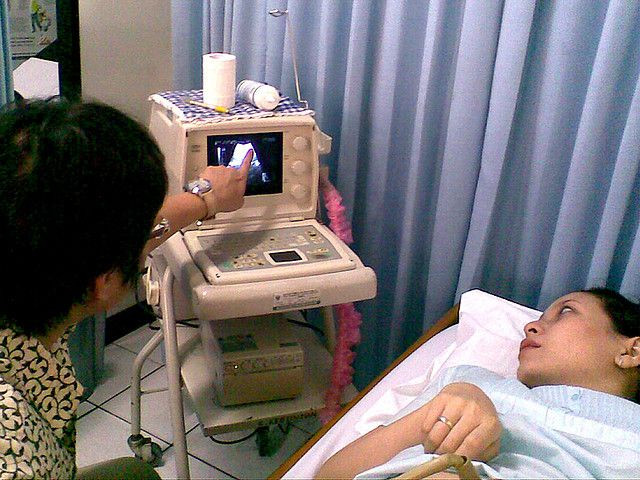65% Of Pregnant Women In US Seek Medical Care From Multiple Providers Over The Past Decade

Health care is crucial to maintaining a healthy pregnancy. New studies find that pregnant women have been seeking care from multiple health care providers over the past ten years, in order to ensure both their own and their child's wellbeing before, during, and after pregnancy.
A new study examined the responses of 3,204 pregnant women to National Health Interview Surveys polls regarding the health care they received in the past year. The questionnaires accrued answers from 2000 to 2009. Researchers found that 65 percent of pregnant women received care form multiple clinicians, including family physicians, obstetricians, midwives, nurse practitioners, and physician's assistants.
Of note, 35 percent of women received care from at least one type of doctor. This percentage remained the same over the 10-year period. Of these 35 percent, four percent sought care from a general, or family, physician, while 30 percent sought care from an obstetrician and two percent sought care from a midwife, nurse practitioner, or physician's assistant.
Close to eight percent of pregnant women over the 10-year study did not receive any care during their pregnancy. Since this is a low number, it did not alarm the researchers. However, this is still an issue.
It is important that pregnant women have access to as much health care as they need. The American Pregnancy Association estimates that 13 percent of women who become pregnant each year do not have health insurance, and therefore receive inadequate or incomplete prenatal care. Having a health care professional to guide choices during pregnancy or advise on symptoms such as morning sickness or weight gain is key to maintaining a healthy pregnancy.
The researchers concluded that their findings underscore the importance of care coordination for pregnant women. While it is important for pregnant women to seek all the possible avenues of health care available to them, seeking multiple doctors can become problematic. Each doctor may not be in touch with others, and as a result, information about a woman's health may not be adequately documented and considered. Therefore, coordination of the care that women receive at preconception, prenatal, and postpartum stages of pregnancy is essential to ensure adequate, well-rounded care.
Source: Fontaine P, Kozhimannil KB. Care From Family Physicians Reported by Pregnant Women in the United States. Annals of Family Medicine. 2013.
Published by Medicaldaily.com



























